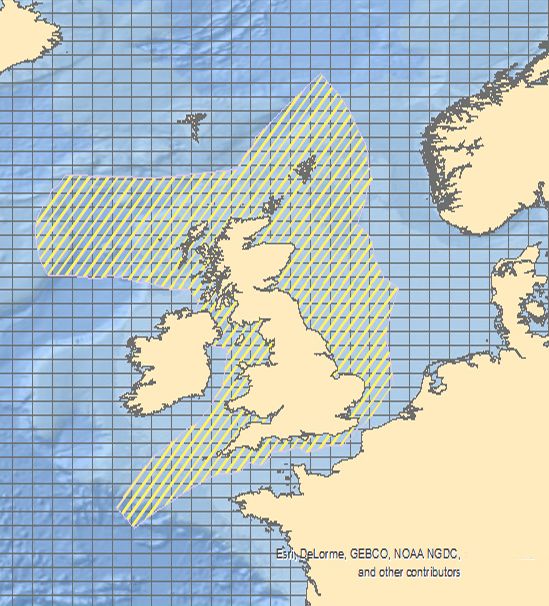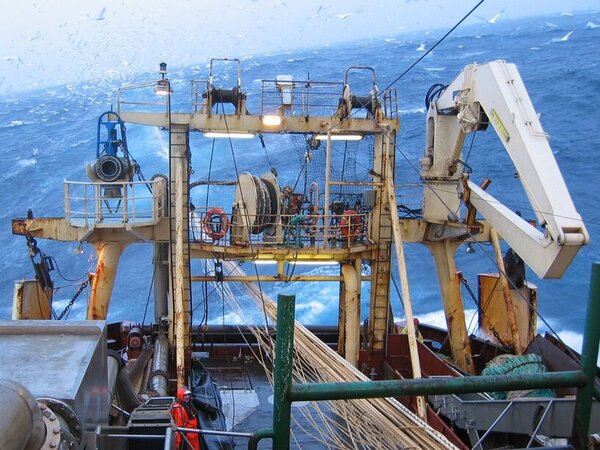Expertise
Effects of Brexit on German deep-sea fishing
Ralf Döring | 24.03.2023
On December 24, 2020, the European Union (EU) and the United Kingdom (UK) agreed on a treaty regarding trade and future cooperation (post-Brexit agreement). Part of this treaty is also an agreement on fishing modalities for fisheries.
UK waters are home to exceptionally rich fishing grounds. Fishing vessels from other EU states therefore earned a significantly larger share of their fishing quotas in the UK's Exclusive Economic Zone (see chart) than vice versa.
With the end of the transitional period, the UK is now no longer included in the EU's Common Fisheries Policy. Although the new agreement allows European fishermen continued access to UK waters, their share of the total fixed catches decreases, gradually by about 25% by the end of 2025, relative to the value of the total catches in UK waters in 2020.
Thünen Institute investigates effects
Until December 31, 2020, the British were part of the internal quota distribution in the EU. It states that each member state gets a fixed share of the total EU quota (principle of "relative stability"). Now the UK's share is increasing and the EU can distribute less internally. In this process, the member states are affected to different degrees.
According to the Thünen Institute, Germany's possible share of the EU's total revenue losses is 9.8% from 2021 to 2025 compared to 2020. However, these are only very rough estimates, as catch quotas and fish prices fluctuate strongly - no one can currently predict how these two parameters will develop for the years 2021 to 2025.
In terms of individual fish species, there are also major differences. For example, it has been agreed that there will be no change in the distribution of fishing opportunities for North Sea plaice. The EU will therefore receive the same share of the total catch as in 2020. The situation is very different for North Sea herring and mackerel in the Northeast Atlantic: For herring, the EU share is reduced from 75.9% (2020) to 71.3% (2021) and further to 67.7% (2025). For mackerel, the EU share was 41.7% in 2020; it was 35.2% in 2021 and then will fall to 30.8% in 2025.
Although the EU's share of the total catch will fall much less than feared (British fishermen claimed up to 80% of the total catch for themselves), the agreement results in a significant loss. Based on 2020 quotas and revenues, the forecast for 2021 was a potential loss of about €1.1 million in landing revenues for herring, while for mackerel it was expected to be €3.3 million. In fact, landings of mackerel in 2021 were then only about half of the quota for 2020 and thus also only about €10 million, compared to about €22 million in 2020. Here, however, quota from Germany may also have been exchanged for other quotas. For North Sea herring, landings fell from about 29,440 t in 2020 to 25,410 t in 2021, corresponding to a revenue loss of about €1.3 million. Other important fish species for German fisheries, such as sole or saithe, also experienced losses - about €2 million for sole, €2.2 million for saithe. However, other factors such as the impact of the Corona pandemic also play a role in this decline.
EU supports affected fisheries
By 2025, the quota shares of European fishermen will continue to decline and the losses to the fishery will add up accordingly. For this reason, the EU is supporting its fisheries with the so-called "Brexit Adjustment Reserve". However, it will be essential for the severely affected fisheries to adapt to the new situation in the long term.
To support corresponding structural adjustments, the "reserve" can be a valuable tool. The Thünen Institute of Sea Fisheries collaborated on the regulation that governs the distribution of funds, and which was approved by the EU Commission in March 2023. The sector can now receive payments for permanent cessation and investment aid for measures on fishing vessels to diversify fishing activities, among other things. Support to improve marketing and adapt fish processing capacity is now also possible.
Effects on trade still unclear
Will the Brexit also change trade flows in fish and fish products? The Thünen Institute does not yet know anything more about this. However, there have been reports after January 1, 2021, especially from the UK, that exports to the EU have become significantly more difficult. The analysis of trade flows in the past has shown that the UK mainly exports raw goods, while finished goods are imported (also from Germany). For Germany, the trade balance looked positive - in 2016, for example, fish products were exported for 230 million euros, while goods were imported for 105 million euros.








